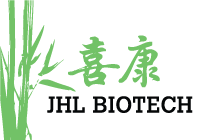- Bone Health
- Immunology
- Hematology
- Respiratory
- Dermatology
- Diabetes
- Gastroenterology
- Neurology
- Oncology
- Ophthalmology
- Rare Disease
- Rheumatology
Former JHL Biotech Officials Indicted in Theft of Trade Secrets From Genentech
Top executives of JHL Biotech are alleged to have conspired to steal secrets for development of rituximab, bevacizumab, and trastuzumab biosimilars. Two co-conspirators have pleaded guilty in the case.
Two former officials of JHL Biotech, formerly of Zhubei, Taiwan, are alleged to have stolen trade secrets relating to biosimilar manufacture from Genentech, and a former Genentech principal scientist and her husband have pleaded guilty to conspiring to assist them, according to an unsealed indictment and statement from the US Attorney’s Office for the Northern District of California.
Raco Ivanov Jordanov, 73, of Rancho Santa Fe, California, co-founder and former CEO of JHL and Rose Lin, 72, of South San Francisco, California, another company co-founder and former company chief operating officer, are alleged to have also committed wire fraud exceeding $101 million.
The unsealed indictment alleges that the two worked with insiders at Genentech in San Francisco, California, to steal thousands of confidential and proprietary documents from Genentech that enabled JHL to accelerate its development and production of biosimilars of Genentech agents. JHL is alleged to have used the advantage it gained to obtain a lucrative biosimilar development deal with Sanofi.
At the time, JHL was working on biosimilars for rituximab (Rituxan), trastuzumab (Herceptin), and bevacizumab (Avastin).
Alleged Scheme
The indictment states that the scheme began in 2009 when Lin recruited a scientist at Genentech and her husband to steal confidential information. Those secrets helped JHL to “cut corners, reduce costs, solve problems, save time, and otherwise accelerate product development timelines,” the indictment states.
The alleged perpetrators were said to have taken documents covering Genentech’s standard operating procedures and pasted JHL logos over them and passed them off as JHL standard procedures. The partnership with Sanofi, a Paris, France-based company, was for the manufacture and distribution of biosimilars in China. That deal was signed in 2016.
“Sanofi allegedly paid $101 million to JHL Biotech, using foreign and interstate wires to carry out the corporate transaction. This cash payment allegedly was part of a strategic relationship worth potentially $337 million to JHL Biotech,” the indictment states.
Upon disclosure of some of the aspects for the above-described allegations, in 2019, JHL’s stock valuation, once as high as $916 million, crashed. The company later renamed itself and divided into 2 companies: Eden Biologics and Chime Biologics, both of Wuhan, China.
Co-conspirators
In tandem with the indictment, the US Attorney’s Office also indicated that Xanthe Lam and her husband Allen Lam, who worked in the Quality Control Department at Genentech, have pleaded guilty to conspiracy and other charges related to the theft of trade secrets from Genentech.
Newsletter
Where clinical, regulatory, and economic perspectives converge—sign up for Center for Biosimilars® emails to get expert insights on emerging treatment paradigms, biosimilar policy, and real-world outcomes that shape patient care.

